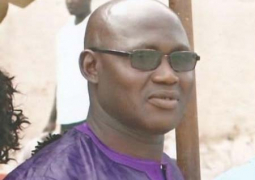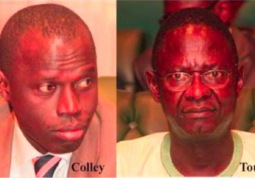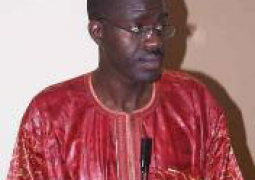The Kanifing Magistrates' Court is expected to rule on a 'No-case-to-answer' submission, filed by defence counsel Edrisa M. Sissoho, in defence of his client one Alieu John, who was charged with forging the signature of the complainant in the case.
In his submission, the counsel stated that the accused was charged under an eleven-count charges with related offences that are documentary in nature, and that the charges related to one transaction or event.
He further indicated that the matter was really very simple notwithstanding its appearance of being complicated.
Counsel noted that the complaint was that the accused forged the signature of the complainant, and used the complainant's name in his request for quotations for spare parts from a third party, named WHYNOT.
He went on to state that the accused pleaded not guilty, and in his cautionary statement, tendered as exhibit P8, did not deny making the documents, but asserted that the complainant knew about it, and gave him his expressed permission to use his name.
Sissoho quoted Section 166 of the Criminal Procedure Code, which stated that "if at the close of the evidence in support of the charge, it appears to the court that a case is not made out against the accused person sufficiently to require him to make a defence, the court shall, as to that particular charge acquit him."
He argued that the accused has no-case-to-answer. Counsel said he was making this submission, having regard to the evidence. He cited authority to back-up his point, which states that a submission of no-case-to-answer may successfully be made if:
a. the prosecution fails to prove essential elements of the offence or
b. if evidence has been so destroyed by cross-examination, and the complainant's story was so unreliable, that the court should not give it any credibility or rely on it.
Consequently, counsel told the court that the accused has no case-to-answer, and should be acquitted and discharged.
The police prosecutor, Inspector Mballow, in reply, maintained that the accused person has a case-to-answer, citing the evidence adduced by the seven prosecution's witnesses.
The prosecutor further submitted that the prosecution has established prima facie case against the accused person.
It is the duty of the accused person to expose the weakness in the evidence of the prosecution's witnesses in order to succeed in the no-case-to-answer submission.
He urged the court to overrule the submission and then called on the accused to enter his defence.
The case was adjourned for ruling.




